Behind the bustling Dongdaemun shopping district in Seoul lie streets teeming with life, a remote replica of the Silk Road in the modern and dynamic Korea.
The streets are collectively called the Central Asian street, or the Mongolian street, or the Russian street, depending on whom one asks. Their equivocal names speak of the disparate identities that have left their traces, as well as the diverse industries that throng there.
Underneath Cyrillic signboards, people tinker with tools of their trade, their eyes twinkling curiously at strangers. One almost experiences a deja vu harking back to the 1980s. The aroma of roasted lamb pervades the gritty streets.
The streets are collectively called the Central Asian street, or the Mongolian street, or the Russian street, depending on whom one asks. Their equivocal names speak of the disparate identities that have left their traces, as well as the diverse industries that throng there.
Underneath Cyrillic signboards, people tinker with tools of their trade, their eyes twinkling curiously at strangers. One almost experiences a deja vu harking back to the 1980s. The aroma of roasted lamb pervades the gritty streets.
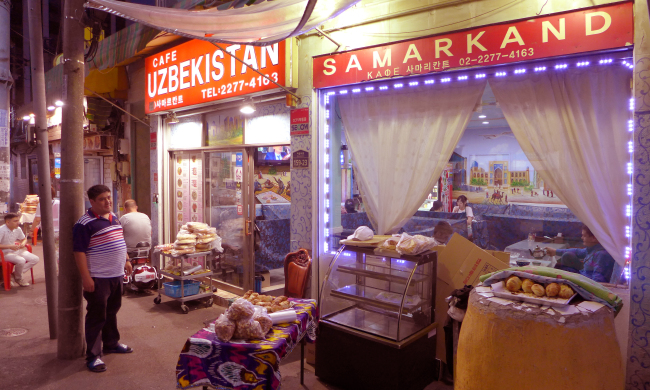
This is where Amonova Dilorom has made a fortune with her restaurants named Samarkand, now a beloved presence in the neighborhood of Gwanghui-dong.
“Koreans found lamb unpalatable 16 years ago when I first opened the business,” Amonova, 45, told The Korea Herald. “Nowadays they make up to 70 percent of my customers. The rest are highly international, people from Central Asia, Russia, China, et cetera.”
The Uzbek, who came to Korea in 1997 with her parents, said her business started thriving with the growing number of her compatriots as well as Central Asians here. Now she owns four restaurants in the area, all having the same name Samarkand, and her relatives have opened five Uzbek restaurants across Korea.
Her parents still sell fabric, shoes and cars to Uzbekistan as they have done for the last 20 years.
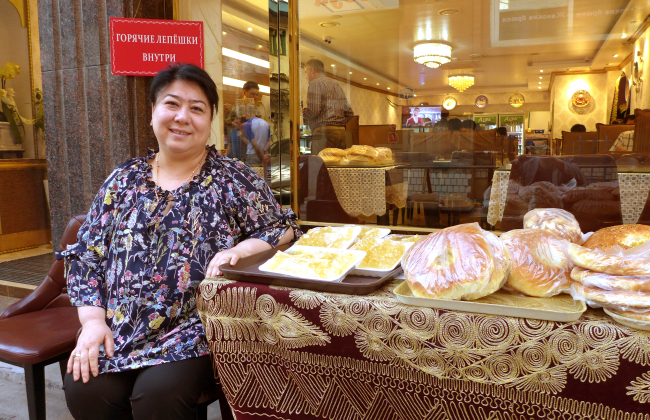
“Uzbeks are a mercantile people,” she said, adding that the ancient Silk Road passed through her motherland. “Many of them have come to Korea to do business, lured by the lucrative sales of high-quality Korean products. Others visit here for state-of-the-art medical services or education.”
Noting she has to renew her visa annually as a foreigner and pay a “hefty” commercial tax, Amonova admitted having wishful thoughts of working idly and hiring Uzbek chefs, which has proved to be difficult. It is particularly complicated to secure visas for her employees, she said.
Khodjaev Zafar, the owner of Uzhanaro shipping, said his earnings have dwindled since he launched his store two years ago.
“As the economy here has lost steam, people are sending less goodies back home,” he noted. His store ships to Central Asian countries and Russia.
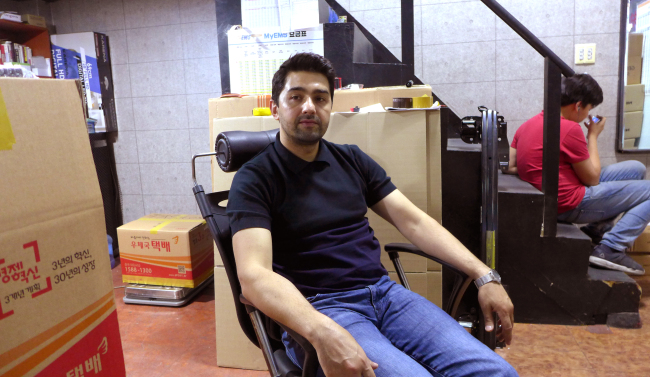
Khodjaev explained that Uzbeks come to Korea by the thousands each year through an inter-government laborer exchange scheme. They mostly work in factories across the country.
During the Lee Myung-bak and Park Geun-hye administrations, benefits and perks offered to foreigners dried up, the 35-year-old Uzbek said.
“But Korea is a good country to live in. We all love our lives here. It is safe and convenient. The quality of life is high. You can be rich by working hard.”
The town encompasses restaurants, bakeries, supermarkets, motels and shipping stores scattered throughout arteries and tissues of urban tracts.
The ward was first crowded by Russian merchants who came to Korea after the breakup of the Soviet Union in the early 1990s. The Asian financial crisis of the late 1990s marked its heyday, with Russian traders, dancers and prostitutes wheeling and dealing in the unfettered, pleasure-seeking city. Ethnic Koreans living in Central Asia, known as “Koryoin,” also carved out their embryonic niches.
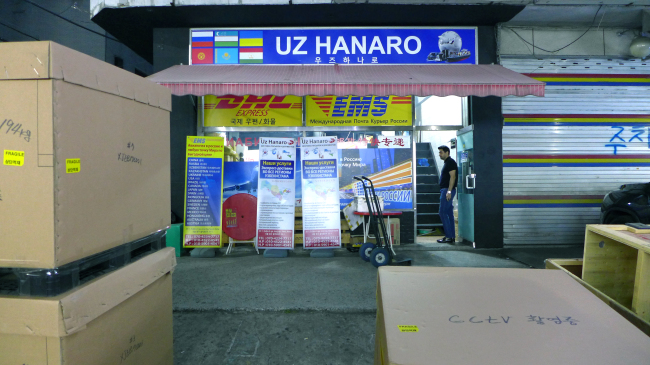
Unlike the migratory Russians, laborers from Mongolia, Uzbekistan and other Eurasian countries found the area ideal for settling. Their growing presence set in motion an evolution of land use, inevitably altering the landscape.
“There have been many Korea fans in Uzbekistan even before the rise of Hallyu Korean Wave boom,” said Lee Seok-jae, 45, who lived there to do volunteer work and business, at restaurant Samarkand. “I come here to re-experience delicious Uzbek food from time to time.”
With over 120 ethnic peoples living together and marrying one another, Uzbek women are “beautiful,” he said, confirming the popular thinking among Koreans that “women as beautiful as Korean actress Kim Tae-hee can easily be found plowing the land in Uzbekistan.”
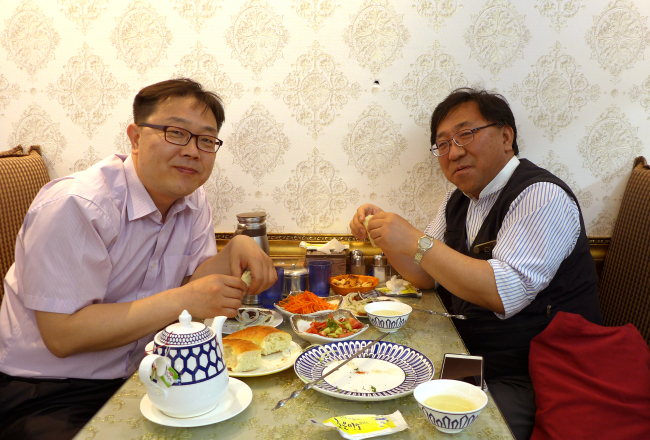
On a more serious note, Lee said that as Korea enters an aging society, foreigners like Central Asians -- whose minds and habits are similar to Koreans’ -- should be wholeheartedly welcomed.
The Koryoin, who were expelled from Stalinist Russia in the 1930s and forced to settle across Central Asia, still harbor strong nostalgia for their homeland in their fourth-generation diasporas, according to Lee.
“Similar to Koreans in the 1960s through ’70s, I got the impression that Uzbeks have souls yet to be spoiled by the riches,” he said. “The Koryoin also have a deep sense of their roots. If Korea made serious efforts to bring in outsiders and integrate them through policies and local communities, I am sure they will be an important fabric of our new society.”
By Joel Lee (joel@heraldcorp.com)








![[Kim Seong-kon] Democracy and the future of South Korea](http://res.heraldm.com/phpwas/restmb_idxmake.php?idx=644&simg=/content/image/2024/04/16/20240416050802_0.jpg&u=)







![[KH Explains] Hyundai's full hybrid edge to pay off amid slow transition to pure EVs](http://res.heraldm.com/phpwas/restmb_idxmake.php?idx=652&simg=/content/image/2024/04/18/20240418050645_0.jpg&u=20240418181020)

![[Today’s K-pop] Zico drops snippet of collaboration with Jennie](http://res.heraldm.com/phpwas/restmb_idxmake.php?idx=642&simg=/content/image/2024/04/18/20240418050702_0.jpg&u=)